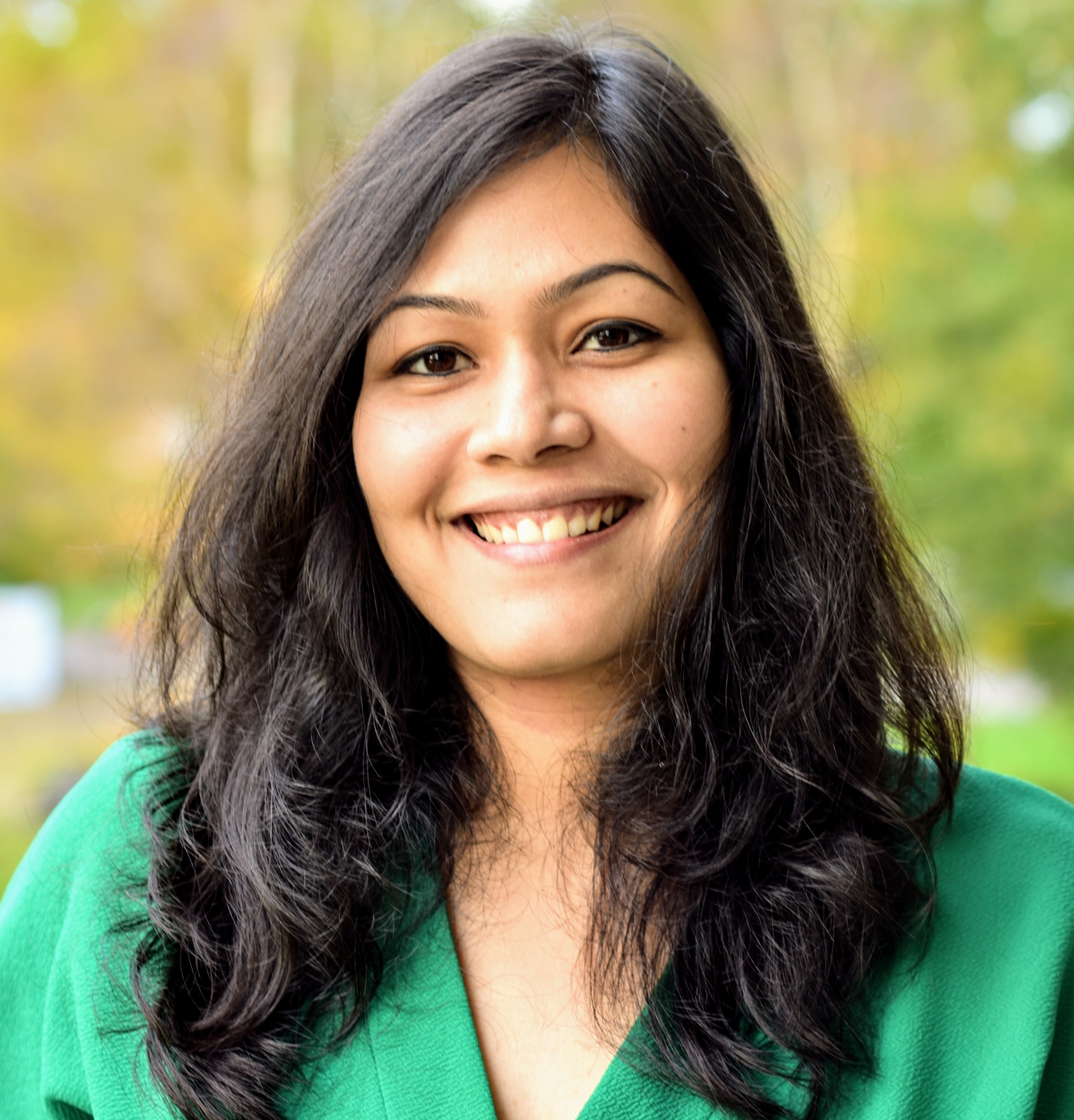
Keywords
Fields of Research (FoR)
Biochemistry and Cell Biology, Biophysics, Cell Physiology, Cellular Interactions (incl. Adhesion, Matrix, Cel, Cell Development, Proliferation and DeathSEO tags
Biography
Dr. Vaishnavi Ananthanarayanan is an EMBL Australia Group Leader at Single Molecule Science, School of Medical Sciences.
She graduated with a Ph.D. in Biophysics from the Max Planck Institute of Molecular Cell Biology and Genetics, Dresden, Germany in 2014. Prior to this, Vaishnavi pursued a dual degree - M.Sc. Biological Sciences and B.E. Computer Science at BITS, Pilani, India. She started her independent group in 2014 at the Indian...view more
Dr. Vaishnavi Ananthanarayanan is an EMBL Australia Group Leader at Single Molecule Science, School of Medical Sciences.
She graduated with a Ph.D. in Biophysics from the Max Planck Institute of Molecular Cell Biology and Genetics, Dresden, Germany in 2014. Prior to this, Vaishnavi pursued a dual degree - M.Sc. Biological Sciences and B.E. Computer Science at BITS, Pilani, India. She started her independent group in 2014 at the Indian Institute of Science, Bangalore with her Dept. of Science and Technology (India) INSPIRE Faculty Award. She transitioned to an Assistant Professor position in the same institute in 2017. She was awarded the Dept. of Biotechnology (DBT, India) Innovative Young Biotechnologist Award in 2015, Science and Engineering Research Board (India) Early Career Research Award in 2016, and was elected Associate of the Indian Academy of Sciences in 2018. In 2019, she was inducted to the European Molecular Biology Organization (EMBO) as a Young Investigator and was granted the Wellcome Trust/DBT India Alliance Intermediate Fellowship. Most recently, her work was recognised with the Indian National Science Academy’s Medal for Young Scientists 2020 and the American Society for Cell Biology (WICB) Junior Award for Excellence in Research 2021. In June 2020, she co-founded BiasWatchIndia, an initiative to document representation of women, and to combat gender-biased panels at Indian science conferences.
My Qualifications
- Ph.D. Biophysics July 2010- Jan 2014
Max Planck Institute of Molecular Cell Biology and Genetics, Dresden, Germany
- B.E. (Hons.) Computer Science and M.Sc. (Hons.) Biological Sciences (dual degree) Aug 2004- Aug 2009
Birla Institute of Technology and Science, Pilani, India (CGPA: 9.28/10)
My Awards
2023 UNSW School of Biomedical Sciences ‘Researcher of the Year’ Award
2021 American Society for Cell Biology (ASCB) Junior Award for Excellence in Research (Women in Cell Biology)
2021 UNSW School of Medical Sciences ‘Values in Action’ Award M
2021 Member of the Editorial Board, Journal of Biosciences
2020 Medal for Young Scientists, Indian National Science Academy
2019 Member of the Editorial Advisory Board, Journal of Cell Science
2019 ‘Cell Scientist to Watch’, Journal of Cell Science
2019 Women Excellence Award, Science and Engineering Research Board (India)
2019 RI Mazumdar Young Investigator Award
2019 BITS Alumni Association Global 30 Under 30 Award
2018 EMBO Young Investigator
2018 Wellcome Trust/DBT – India Alliance Intermediate Fellowship
2018 Associate of the Indian Academy of Sciences
2016 Early Career Research Award, Science and Engineering Research Board (India)
2015 Innovative Young Biotechnologist Award, Department of Biotechnology (India)
2014 INSPIRE Faculty Award, Department of Science and Technology (India)
My Research Activities
Cells employ tiny machines called ‘motor proteins’ to carry out a myriad of functions including maintenance of cellular organisation, transport of substances across the cell, and generation of forces required for cell division. These activities of motor proteins are facilitated by polymers inside the cell termed ‘microtubules’. Microtubules function as tracks for motor movement, and alternately as ropes which motor proteins pull on. Several cellular processes require a coordination of motor proteins and microtubules. Scientists have gained a wealth of information by replicating cellular processes involving motors and microtubules outside living cell, in what are called ‘in vitro’ experiments. However, understanding the complex intracellular milieu within which motors operate to organise the cell remains an elusive quest. A thorough investigation of processes regulating motors and microtubules therefore lets us see how these processes unravel in both contexts of health and disease (including neurodegeneration and cancers), where they go rogue.
- Our main research themes are:
- Regulation of motor proteins
- Cytoskeleton-organelle interactions
- Intracellular organisation
- Cellular decision making
- In vivo single-molecule imaging
My Research Supervision
Supervision keywords
Areas of supervision
ILP, Honours, Masters, PhD
Currently supervising
Postdoctoral Fellows
- Gregory Redpath
- Nida Ul Fatima
- Zeenat Jahan
HDR students
- Leeba Ann Chacko
- Raful Navarro Espindola
- Hejie Jack Zhang
- David Kim
- Ayan Das
- Harsh Kumar
Honours students
- Shreya Boby
My Teaching
Courses
- Cell Mechanics (2019)
30 hours of teaching in a semester to a class of ~25 Undergraduate and Graduate students.
- Biology and Physiology for Engineers (with Prof. Siddharth Jhunjhunwala, BSSE, 2018 – 2020)
7.5 hours of teaching in a semester to a class of ~25 Graduate students.
Invited Instructor
- Introduction to image analysis: A hands-on introduction to image analysis on Fiji/ImageJ. Taught at:
-
- RCB Bioimaging Workshop, Regional Centre for Biotechnology, India, 2018
- International Workshop on Modern Biophysical Tools and Techniques, IIT Bombay,India, 2017
- QIP Course on Modern Biophysical Tools and Techniques, IIT Bombay, India, 2017
- Workshop of Biennial Meeting of the Indian Society of Developmental Biologists, IISER Pune, India, 2017
- Cytoskeleton and Motor Proteins (As a part of the Bioengineering Workshop held at, Indian Institute of Science, 2018)
- Advances in Cell Biology – Protein Trafficking (As a part of Indian Science Academies’ Refresher Course for College Teachers)